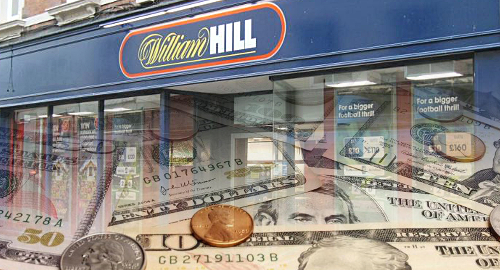 UK bookmaker William Hill relied on its online and US divisions to offset a weak retail performance in the first four months of 2018.
UK bookmaker William Hill relied on its online and US divisions to offset a weak retail performance in the first four months of 2018.
In a trading statement issued on Tuesday, Hills reported its overall revenue rising 3% year-on-year in the 17 weeks to April 24. Hills CEO Philip Bowcock called the result a “positive start” to the year and claimed to be making “further progress against our strategic priorities to grow UK market share, drive international revenues and deliver key transformation projects.”
The year-on-year rise doesn’t include Hills’ troubled Australian division, which the company offloaded to local rival CrownBet in March. The Aussie division reported revenue down 22% as online betting turnover fell nearly 40% (primarily due to Hills’ halting marketing efforts). Had those Aussie ops been included, the overall year-on-year gain would have been a more modest 1%.
Overall online revenue improved 12% during the period, driven by a 17% rise in online sports betting, which was itself driven by gross win margins improving 1.3 points to 8.8%. However, taking punters to the cleaners led to “lower recycling” that – in tandem with “client management actions” in international markets – pushed online sports handle down 8%.
Online gaming revenue was up 8% as total online actives improved 10% during the period. The company has been running campaigns to push its online Vegas and Casino brands in the hopes of attracting bored FIFA World Cup bettors waiting for the next match to kick off next month.
Hills’ UK retail net revenue fell 4% in the period, as sports betting was down 9% while gaming was flat. With the UK gov’t appearing likely to push for a reduction in fixed-odds betting terminals’ maximum betting stakes to £2, Hills’ betting shops won’t be able to rely on gaming revenue to offset sports declines in future.
Retail sports betting turnover was down 13% but this was partially offset by an unusually high win margin (18.8%). Like its rival Paddy Power Betfair, Hills blamed its sports shortfall on “reduced recycling” after taking too much money from punters, as well as bad weather leading to the cancellation of 15% of UK and Irish racing fixtures.
On the plus side, Hills’ proprietary self-service betting terminals (SSBT) “grew strongly” in the reporting period, accounting for 14% of retail wagering.
The William Hill US division had a seriously strong start to 2018, with revenue surging 45% (62% in local currency) thanks to “strong underlying growth compounded by unusually good sports results.” Mobile wagering was up 39%, accounting for 64% of total wagering in the period.
The US operation benefited from the introduction of in-play tennis betting, the March Madness basketball tourney and the surprising strength of the local National Hockey League expansion franchise, the Las Vegas Golden Knights. The Knights recently clinched a trip to the conference finals, and bettors’ interest in their progress is expected to grow.
The relatively solid trading update wasn’t enough to quell a minor revolt by Hills shareholders at the company’s annual meeting in London on Tuesday. Nearly 31% of shareholders voted against a plan to boost CEO Bowcock’s pay by 9% to £600k. The company issued a statement noting the “significant” opposition but claimed Bowcock’s pay packet was “justified in the context of the key events and ongoing industry challenges.”